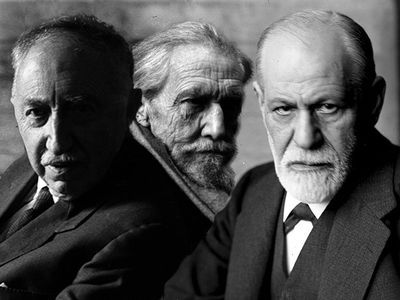Who is your most overrated author?
By TOBY LICHTIG
In early 1977, to celebrate its seventy-fifth birthday, the TLS ran a special issue in which a score of literary luminaries was asked about the authors who, in their opinion, were most underrated ��� and overrated. The exercise was brilliant because of the people polled: Anthony Powell, Roland Barthes, Christopher Isherwood, Philip Larkin, Vladimir Nabokov, William Empson, and many others.
The responses were suitably forthright, provocative, amusing. Hugh Trevor-Roper considered ���the whole Bloomsbury group ��� excepting only J. M. Keynes ��� to be the most overrated literary phenomenon of our times��� ��� and Lytton Strachey to be its charlatan-in-chief.
Rebecca West dismissed Leo Tolstoy for the ���sheer nonsense��� of Anna Karenina; Larkin chose D. H. Lawrence, mostly on the basis of Women in Love (���boring, turgid, mechanically ugly���). Readers were treated to a gnomic Bob Dylan (���Overrated and underrated: the Bible���), a paranoid Karlheinz Stockhausen (���for security reasons I cannot name the book which I consider to be ���the most over-estimated������) and a plainspoken Thomas Balogh (���Michael Arlen ��� identified with the essential snobberies of the British as only a foreigner could���).
In the ���overrated��� category, several authors were selected more than once: J. R. R. Tolkien, Ezra Pound, Arnold Toynbee, Sigmund Freud. E. M. Forster was chosen both by Anthony Powell, for his ���bland self-satisfaction���, and Anthony Burgess, for his lack of ���creative potency���. Andr�� Malraux cropped up three times, an interesting reflection of the era. Who now rates Malraux at all? For Barthes, Malraux was imaginatively ���feeble���, for Hugh Trevor-Roper one of ���the great charlatans���, for Richard Cobb quite simply ���fraudulent���. (Cobb also scorned James Joyce as ���arrogant, unpleasant, and above all, quite unreadable���). Those under attack, by a tacit gentlemanly agreement, were all dead ��� though not necessarily for long. Malraux had been in the grave for barely two months; Isaiah Berlin���s choice was Hannah Arendt, who died in late 1975.
The ���underrated��� sections, though less entertaining, were no less instructive. (It may be noted that John Betjeman and David Hockney were too kind to damn anyone, as was Nabokov, R. D. Laing and Lord David Cecil.) Some of those cited remain underrated ��� which is to say that I for one have barely heard of them. Who now reads (or ever read) Maurice Baring, Leo Shestov, Lucien L��vy-Bruhl, John O���Hara, Forrest Reid? Some, such as John Cowper Powys (selected by Angus Wilson), have just about been rehabilitated. Conversely, it now seems amusing to see Italo Calvino (chosen by Eric Hobsbawn) in the ���underrated��� category, given the widespread hero worship he continues to provoke, particularly among undergraduates. As in so many things, Hobsbawn was ahead of his time. So, too, was Michal Dummett, who selected Ralph Ellison for Invisible Man�� ��� a novel that can hardly nowadays be described as overlooked.
The biggest winner from this special issue was Barbara Pym, chosen by both Cecil, who described her books as ���the finest examples of high comedy to have appeared in England during the past seventy-five years���, and Larkin: ���the six novels Pym published between 1950 and 1961 ��� give an unrivalled picture of a small section of middle-class post-war England���. The story has now become a part of TLS, and wider literary, lore. Pym, who had been out of print for several years, really was brought in from the cold on the back of this support, and she went on to publish several more novels. She continues to be widely read, and enjoyed, today.
Why am I raking over all this now? Well, on Sunday (October 4) we'll be reprising the jape in the form of a debate I���ll be chairing at the London Literature Weekend. It's on at King���s Place at 6.30pm. I can���t offer you Nabokov or Rebecca West, and Dylan was otherwise engaged (he���s playing at the Albert Hall; as it happens). I can, however, offer a suitably stellar panel, comprising the author-critics and TLS stalwarts D. J. Taylor, Claire Lowdon and Jonathan Keates. I won���t give away who���s in the firing line ��� and who���s being given a boost ��� but you can take my word for it that some eyebrows will be raised. Of course, you can always come along and see for yourself. Tickets are available here.
As for my own choices: I���ll stick for now to the studied neutrality of conscientious chairmanship, but I was amused this afternoon to receive an email from Intelligence Squared telling me that Karl Ove Knausgaard ���is widely described as one of the greatest artistic geniuses alive���. I���m a big fan of Knausgaard, but I wonder if the modern media penchant for superlative praise makes this game even more relevant today. After all, how many other heroes of our times would you consider just a teensy bit over-praised? Haruki Murakami? Hilary Mantel? Elena Ferrante? (I don't really mean that last one: I just thought I'd try to raise some hackles.) More to the point, who are the real charlatans? And who deserves a boost?
Feel free to comment at the end of this blog, or reply by tweet, and I���ll do my best to get in a mention of your choices at the start of the debate.
Peter Stothard's Blog
- Peter Stothard's profile
- 30 followers




